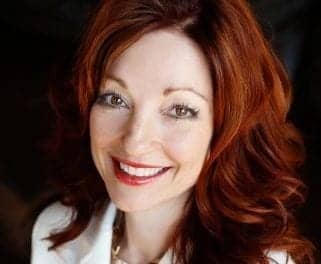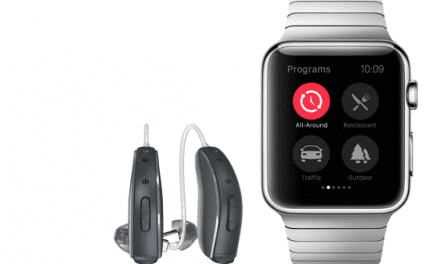DENVER – The sounds of personal connections shared with friends and family – the joy of laughter, a child’s whisper, hearing the voice of someone special over the phone – are the sounds missed most by those suffering from severe to profound hearing loss, according to a recent study conducted by KRC Research.
Nine out of every 10 surveyed with significant hearing loss had been able to hear in the past and were therefore able to reminisce about the sounds they missed most. Of those, 20% said they would most like to hear the voices of friends and family again. Another 12% specifically cited a desire to hear their grandchildren.
Half of all surveyed said that significant hearing loss causes less intimate relationships between those with hearing loss and their friends and family members. When those with severe hearing loss are pressed to pick the single relationship that is most adversely affected, most cite their spousal relationship (26%). All survey respondents, including those with significant hearing loss and their family and friends, see the inability to enjoy talking on the phone as the biggest impact on their lives (72%).
The survey was commissioned by Cochlear in conjunction with Better Hearing and Speech Month to help Americans better understand what the loss of sound means to those with severe to profound hearing loss and the importance it has to personal relationships with friends, family members and colleagues.

Sixty percent of adults surveyed who have a relationship with someone who is severe to profoundly deaf want the person suffering to get treatment so they can have better relationships. Almost half (44%) of those surveyed who have not sought treatment for their hearing loss say they did not believe there was any effective treatment. An equal number said their health care provider did not inform them of their options. Among those surveyed with severe hearing loss who have sought treatment, almost half (47%) were motivated by encouragement from their family.
“Approximately 30 million Americans experience some form of hearing loss. While many of these can be helped with traditional hearing aids, for many, even the most advanced and powerful hearing aids cannot provide an adequate solution,” said Chris Smith, president of Cochlear Americas. “Many of those people suffering aren’t aware that there are life-changing treatments including cochlear implants for severe to profound hearing loss, or Baha for single-sided deafness or mixed and conductive losses. It is estimated that less than 10% of the population who could benefit has taken advantage of cochlear implant technologies.”
May is Better Hearing and Speech Month, an opportunity to educate the public about the value of hearing, the need for hearing loss prevention and hearing conservation, and about available hearing loss solutions. Please log onto www.RaiseYourHand.info to learn more about hearing loss, and to share the details of your favorite experiences with sound.
About the Survey:
This survey was conducted online within the United States by KRC Research on behalf of Cochlear between March 10 and March 23, 2008 using a sample of 506 adults (aged 18 and older). The sample included 200 severe to profound hearing loss sufferers and 306 friends and family of sufferers, drawn from a list of pre-identified sufferers and friends/family. Respondents for this survey were selected from among those who volunteered to participate in the study and the data have not been weighted. Because the sample includes only persons self-selected for participation and not a probability sample, no estimates of sampling error can be calculated. All sample surveys and polls may be subject to multiple sources of error, including, but not limited to, sampling error, coverage error, and measurement error.
About Cochlear:
Since launching the world’s first cochlear implant system more than 25 years ago, Cochlear Limited and its U.S. headquarters have brought sound to more than 140,000 hearing-impaired individuals across the globe. For more information about Cochlear’s products, call the Cochlear Nucleus Hotline at 800/458-4999 (Voice) or 800/483-3123 (TTY) or visit the website at www.cochlear.com.




